Lecture
This lesson is aimed at consolidating the material covered. The way of conducting the lesson: tests, exercises, fragments for drawing up a situational portrait taking into account the kinetic behavior of a person and external factors.
Hartley M. Sign language in business communication. M .: Publishing house Eksmo, 2003. 224 p.
Exercise . Customization to body language
a) Work about a fifteen-minute video recording of a drama or soap opera you know. View the fragment with the sound turned off. How do you understand what is happening? What emotions can you recognize on the screen? Jot down your guesses in the table below (table 10).
table 10.
Scene What happens What emotions portrayed |
one |
2 |
3 |
four |
Now view the snippet by turning on the sound. How correct were your assumptions? |
b) Do the exercise in reverse. Take about a fifteen-minute video of a similar program and, turning your back on the screen, listen to a fragment. Then view it with sound design. How much the characters' actions and the expression of their faces complement your idea of what is happening on the screen? |
Birkenbil V. Language of intonation, facial expressions, gestures. - SPb .: Peter Press, 1997. - 224 p.
Signaling
Determine to which of the five types of posture, facial expressions, gestures, distancing and intonation this or that signal is shown.
Exercise 1.
1. He exclaimed : “I would like to make sure at least once that you will fulfill the task entrusted to you!” _______________________________
2. She stepped back a step : “What did you imagine?” ___________________________________________________
3. He stood leaning against the sideboard with his legs crossed ._________________________________________________________
4. Four-year-old Velinda assured her mother that she could fasten her coat on her own. Mom said: "Of course, you can do it, my treasure!" And immediately she buttoned up her baby's coat ._______________________________________________
5. While Nixon insisted that he was seeking contact with the younger generation, he repeatedly put his hands forward, as if defending himself, as if he wanted to move away from the audience .___________________________________________________
6. You wait, shifting from foot to foot, while the assistant fills in the form .____________________________________________
7. He goes to the window and closes it. ___________________________
8. She looked at him silently, but the wings of her nose trembled with barely contained excitement .________________________________
9. The coffee was so hot that he instinctively spit it out. _____________________________________________________
10. He said ironically : “The gearbox is just happy that you push the pedal so hard.” _____________________________________
Task 2
Try to classify the following signals into five types (posture, facial expressions, gestures, distancing and intonation), and try to do this at the fastest pace possible.
Smirk.
Trampling on the spot.
A shy conversation.
Easy squatting.
Raising eyebrows.
Rapprochement with someone.
Interruption of the conversation.
Tilt (to lift something).
Clenching fists.
Transferring weight from one foot to another.
Looking away.
Speaking words loudly and with pressure.
Silence.
Rise from the chair.
An angry face expression.
Scratching your head.
Make a portrait of kinetic behavior
regarding the situation.
Summarize all gained knowledge of kinetic sign language and make psychological characteristics of the participants in the proposed business and everyday situations.
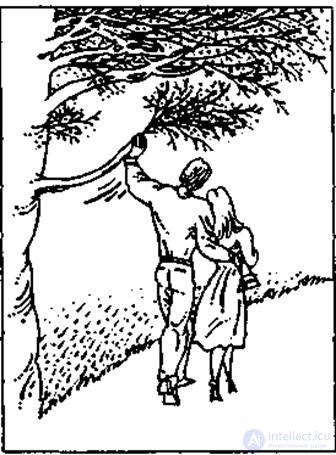
Picture 1

Figure 2
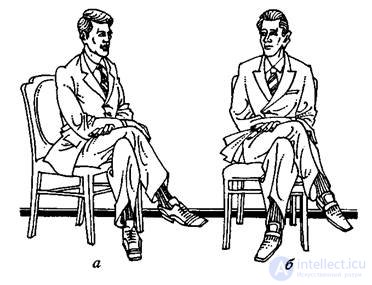
Figure 3
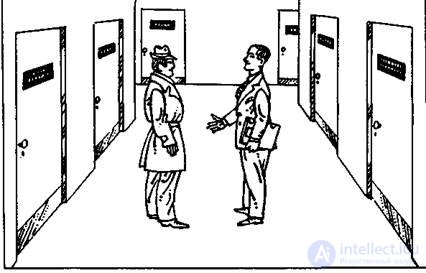
Figure 4
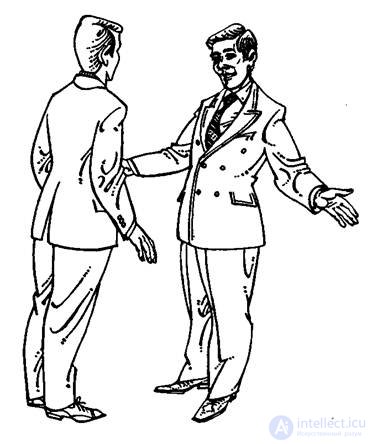
Figure 5

Figure 6

Figure 7

Figure 8
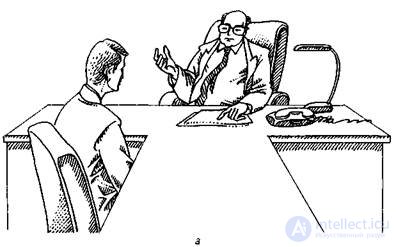
Figure 9

Figure 10
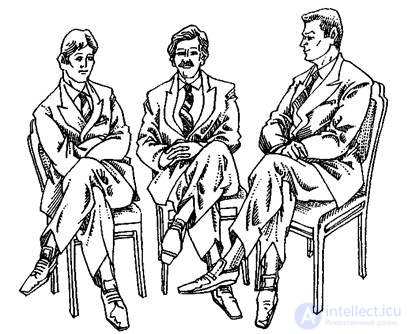
Figure 11
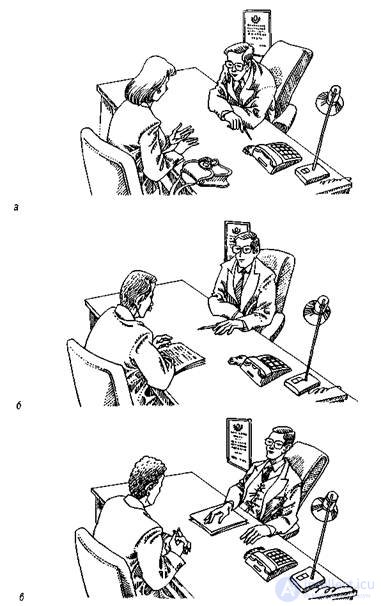
Figure 12 a, b, c.
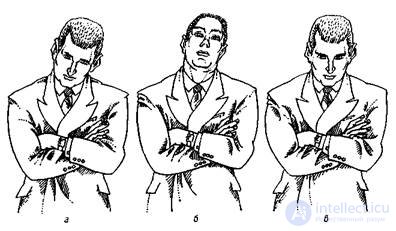
Figure 13
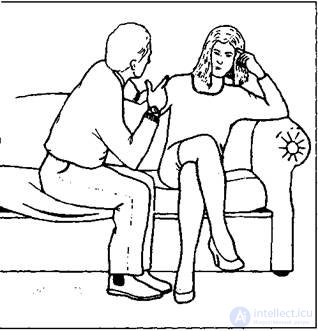
Figure 14
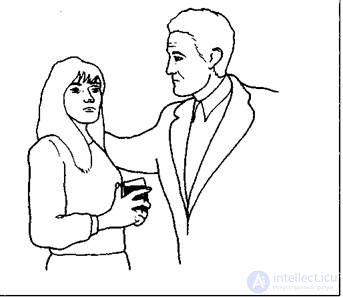
Figure 15
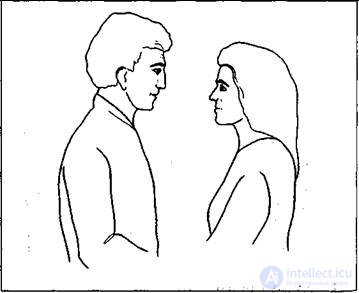
Figure 16
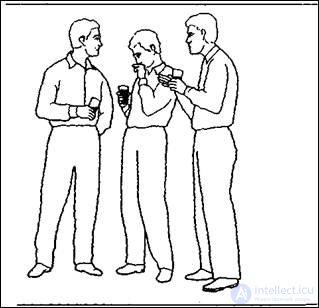
Figure 17
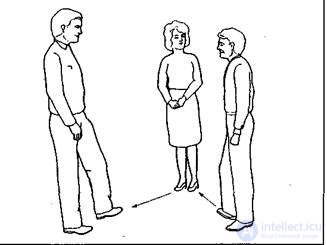
Figure 18
Comments
To leave a comment
Kinesika
Terms: Kinesika